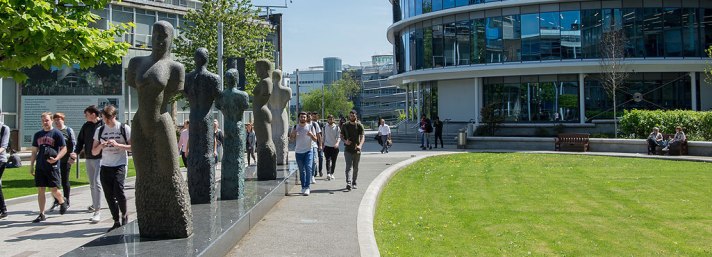
Tiegan English tells us about her experience as a BA English Literature and Creative Writing student and her poetry collection, Solace for Salem, which will be published on halloween this year.
Gothic literature has always been something I’ve been obsessed with, from the harrowing tales to the macabre settings combined with the complexity that the characters within the genre seem to evoke. So, when I found a degree that let me enhance my reading and writing, including the choice of Gothic modules, I was thrilled. My English Literature and Creative Writing degree introduced me to the vast world of literature, whilst cementing my interest in the Gothic, introducing me to my newfound interest of fantasy and historical fiction. I first started writing novels when I was 8, as you can imagine my first novel was…interesting to say the least. I’d like to think I’ve had a bit of development in regard to my literary talent between then and now, but I must admit that ‘The adventures of Spotty the Dog’ will forever remain close to my heart.
Over time, my literature started to take shape, and my love for heartbreak novels started to replace the wonderful adventures of multi-coloured companions, such as faithful Spotty. But even at 17, I was never confident about my writing and often hid my drafts in the deep abyss of my OneDrive. I’d dipped my toe into a vast amount of genres but could never figure out where my writing would fit. Eventually I learned that not all writing has to have a specific genre and it is much better to be confident in your own voice and it wasn’t until my undergraduate degree that I really saw the potential in my work. I’d always been a bit insecure, but I definitely have my degree to thank for my newfound confidence. Being in a classroom surrounded by likeminded individuals in an environment full of creativity is every writer’s dream and, as a result, I felt I’d found a safe space to take my writing wherever I wanted it to go. No matter how dark or twisted or absurd my work seemed, everyone lent an ear and appreciated my work for the uniqueness it possessed. Likewise, it was incredibly beneficial to hear my peers’ creative projects and the techniques implemented into each of their respective works. Subsequently, I began to experiment with my own work and the literary devices I could employ.
The staff were incredibly supportive. Dr Joanne Clement for instance became a major inspiration for me during my studies, leading one of my final year modules. Thanks to her amazing support and advice, I feel like I have finally found my literary voice and established a professional love for the Gothic genre. It was through her encouragement that I felt I could employ my personal relationship with witchcraft into my work. After receiving a first on my creative assignment within the module, I decided to take these poems further and turn them into a full collection. Despite not having him as a module lead directly in my second term, Dr Richard O’ Brien reached out to me and showed me some remarkably valuable articles and works to further support my dissertation and assignment so it could reach its full potential. As a result, I felt incredibly supported by both members of staff and owe them all the thanks in the world for making that little girl, who dreamt of being an author, dreams come true.
Now a bit more about the work that emerged:
The previously mentioned collection, titled ‘Solace for Salem’ is an anthology of poems intended to tell the stories of each and every victim of the famous Salem witch trials. Most people know of the witch trials, with Salem being one of (if not the most) notable locations. However, it tends to be the perpetrators that are remembered at the expense of the victims. This collection seeks to change that! Here, each and every victim has a voice and a chance to speak out against the malicious crimes committed against them. Everyone who knows about witches knows of the Salem witch trials and with this collection, everyone will know why their tales haunted history for so long.
Solace for Salem by Tiegan English will be published on 31st October 2023 by Salpe Publishing (available for pre-order on Kindle)



